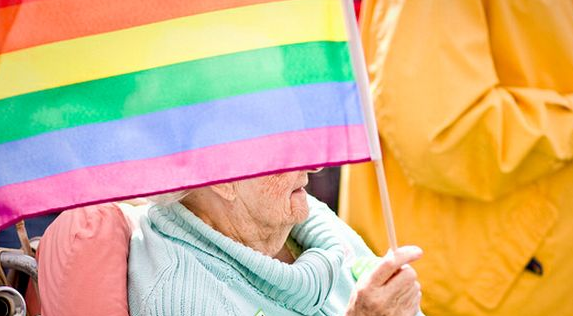World Health Day is celebrated on April 7th of each year and was established by the World Health Organization in 1948, taking effect in 1950.
The day marks the founding of the WHO and aims to bring attention to important health issues around the globe. This year commemorates 2020 as the International Year of the Nurse and Midwife.
To date, there has been no World Health Day explicitly dedicated to LGBTQ communities who face considerably worse health outcomes than the general population. Despite this, however, the queer community can celebrate an increase of financial investment in LGBTQ care and research overall throughout the last several decades. In particular, campaigns dedicated to combatting high rates of suicide, poor health outcomes and homelessness among LGBTQ youth have garnered significant media attention and funding. These efforts have contributed to more social acceptance and the advancement of care tailored to LGBTQ youth.
As we celebrate World Health Day, it is crucial that we applaud these developments and continue to prioritize culturally-competent service delivery for LGBTQ youth. It is also imperative, however, that we acknowledge the ways in which our LGBTQ elders face distinct but equally distressing health challenges.
There are approximately 2.4 million LGBTQ adults over 50 living in the United States. This number is expected to double by 2030. While there may be growing support networks and social acceptance for the LGBTQ community in general, LGBTQ older adults remain largely ignored in research and elder care. This has profoundly affected the health and wellbeing of aging LGBTQ populations.
Caring and Aging with Pride is the first federally-funded study in the United States that looks at aging in the LGBTQ community. The longitudinal study surveyed more than 2,400 LGBTQ older adults ranging in age from 50 to 100 years old about their physical and mental health, and access to social and medical services. The research found that an alarming rate of LGBTQ older adults report loneliness (53%), disability (47%), and depression (31%). Further, approximately 40% of those surveyed reported experiencing suicidal ideations during their lifetime and more than 13% of participants described being denied healthcare or receiving inferior care in medical settings.
Other studies also indicate that LGBTQ older adults face high rates of physical health problems such as diabetes, HIV/AIDS, obesity, asthma and cancer. LGBTQ seniors do not only face disparate physical and mental health outcomes but they also have unique challenges accessing healthcare. For example, LGBTQ elders are more likely to delay or avoid receiving medical attention due to fear of discrimination from providers. They are also less likely to have health insurance and more likely to face financial barriers accessing medical care.
The social and historical contexts of LGBTQ seniors’ lives inform their health outcomes today. In commemoration of World Health Day, let us center those that came before us and pay closer attention to the needs and concerns of our elders. We can do this by volunteering with organizations working to ensure that LGBTQ older adults live healthy and vibrant lives. Below please find a list of volunteer opportunities across the United States. For more information about getting involved, please contact these agencies directly.
Volunteer Opportunities
Lavender Seniors’ mission is to improve the quality of life of older lesbian, gay, bisexual, transgender, and queer (LGBTQ) residents of Alameda and Contra Costa counties. Lavender Seniors advances this mission through direct services, outreach, advocacy and education. A critical aspect of this work is ensuring that LGBTQ elders are well-prepared emotionally, physically, legally, and socially in their later years.
The Northwest LGBT Senior Care Providers Network is an informal coalition of Senior Care Providers working together to provide advocacy and quality of care for the LGBT seniors of Washington State, based on collaboration between community organizations and businesses.
SAGE USA is the country’s largest and oldest organization dedicated to improving the lives of lesbian, gay, bisexual and transgender (LGBT) older adults. Their mission is to lead in addressing issues related to lesbian, gay, bisexual and transgender (LGBT) aging throughout New York City and nationwide.
The LGBT Aging Project is a non-profit organization dedicated to ensuring that lesbian, gay, bisexual and transgender older adults have equal access to the life-prolonging benefits, protections, services and institutions that their heterosexual neighbors take for granted. The LGBT Aging Project’s work is focused in Massachusetts.
The LGBT Elder Initiative (LGBTEI)is committed to assuring that lesbian, gay, bisexual and transgender older adults have rights and opportunities to live vibrant, creative and mutually supportive lives. To achieve this vision, the mission of the LGBTEI is to foster and advocate for services and resources that are competent, culturally sensitive, inclusive and responsive to the needs of LGBT elders in the Delaware Valley and beyond.
The Senior Rainbow Assistance Program’s vision is to provide LGBTQ seniors with the support they need to remain safe, warm and healthy at a time of most need. Their mission is to provide temporary financial assistance for LGBTQ seniors experiencing temporary hardships due to medical or financial concerns to ensure they can maintain their current living arrangements that are safe, warm and healthy.
The LGBTQ National Help Center operates three national hotlines, the LGBT National Hotline, the LGBT National Youth Talkline, and the LGBT National Senior Hotline as well as private, volunteer one-to-one online chat, that helps both youth and adults with coming-out issues, safer-sex information, school bullying, family concerns, relationship problems and a lot more.
Southern Arizona Senior Pride celebrates, supports and unites lesbian, gay, bisexual, and transgender seniors in Southern Arizona. Southern Arizona Senior Pride recognizes and responds to the unique concerns of lesbian, gay, bisexual, and transgender (LGBT) seniors, age 55+ and their younger allies, by creating volunteer, social, and educational opportunities for senior LGBT people, increasing awareness of LGBT aging issues, and developing age-appropriate, LGBT-friendly information and referral services.
